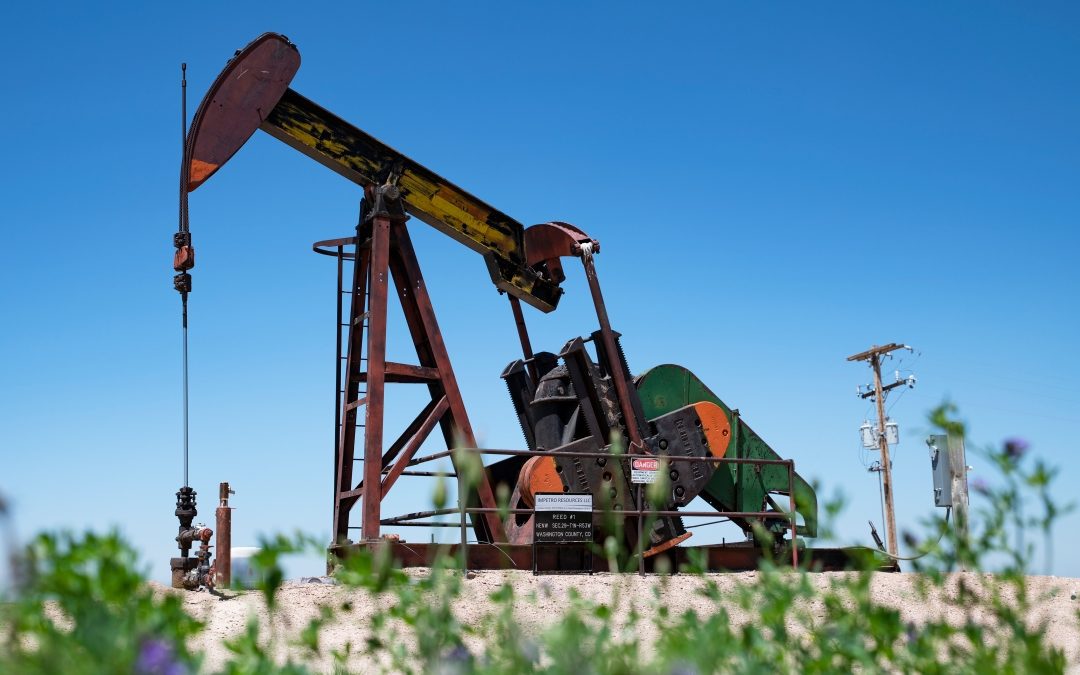After concluding that oil and gas operator KP Kauffman had engaged in “a pattern of violations” fines for the company were boosted to $2 million, the second largest penalty ever issued by the Colorado Oil and Gas Conservation Commission.
In August, the commission levied a $1.8 million fine on the company, known as KPK, for 22 violations at seven sites, but at a hearing this week the COGCC staff argued that the company failures were not isolated incidents and that an “aggravating” multiplier should be applied.
The largest fine, $18.25 million, was issued in 2020 to Occidental Petroleum Corp., the state’s largest operator, for a 2017 house explosion in Firestone that killed two people.
Jeremy Ferrin, the commission’s enforcement supervisor, said KPK was “a poster child” for the use of additional enforcement tools such as the multiplier or suspension of operating certificates. “This is a situation where we need to do something.”
The five members of the commission unanimously agreed.
“There was persistent disregard for the commission’s authority on multiple occasions,” Commissioner Priya Nanjappa said. “There was a pattern of violations.”
Commissioner John Messner said he “found many of the facts around this hearing to be very disturbing … there were systematic deficiencies.”
KPK operates about 1,200 low-producing oil and gas wells on the Front Range, wells mainly acquired from other companies.
The majority of the wells produce the equivalent of less than a barrel of oil a day, and only five of the company’s wells produce more than 10 barrels a day, according to an analysis by the League of Oil and Gas Impacted Coloradans, or LOGIC, a nonprofit community group.
Some of the violations centered on flow lines, which carry oil, gas and water to collection tanks have been a source of leaks and spills, according to COGCC inspections.
One of the violations was for trucking contaminated soil away from a well site and spreading it on a field behind a company office without a permit.
The notice of alleged violations, referred to in testimony as NOAVs, for the seven sites followed an order in April to shut 87 wells and clean up 29 sites for violations that included fouling farm fields and covering a road with oily waste. Those earlier infractions were not part of the case before the commission this week.
In commission testimony over Zoom, Kevin P. Kauffman, 65, KPK’s founder and CEO, said that the collapse of oil prices and the pandemic had hobbled the company’s ability to operate and deal with compliance issues.
“We have not performed as well as we might have under these difficult situations,” Kaufman said. He also conceded that relations between KPK and the commission staff have deteriorated. “I am truly sorry.”
“We are committed to improving,” Kauffman said. “I hope you will give me a chance to show what an excellent operator KPK can be.”
Over the course of the hearing Kauffman and other KPK staff gave a litany of reasons for problems at their sites, including historic contamination that was there when they took over the properties, other oil and gas operators damaging their flowlines, COGCC not getting back to company requests in a timely manner and landowners not letting the company onto to their property to correct violations.
“It seems that a lot of these situations were somebody else’s problem,” Messner said. “Are you trying to insinuate that the majority of the NOAVs, the spills, these situations are not KPK’s responsibility?”
“Without breaking it down,” Kauffman replied, “it is difficult to answer your question.”
The commission still has to decide whether to impose other penalties, such as suspending KPK’s certificates of clearance, which allow it to sell its oil and natural gas, and to determine the company’s ability to pay the $2 million fine.
In testimony, company officials said KPK could not even pay half of the proposed fine. KPK is already dealing with a a $3.5 million settlement with federal and state air quality regulators over emission violations from its tanks that included $2.5 million in equipment upgrades and a $1 million civil penalty.
“Enhancing already steep penalties will not achieve the [goals] we want to achieve,” Kirk Mueller, an attorney for KPK told the commission.
A majority of the commission appeared to agree. “I want to see compliance, this is more important to me than the penalties,” Commissioner Bill Gonzalez said.
Messner proposed suspending part of the penalty pending completion of a remediation plan with tight deadlines.
The hearing was adjourned until October to give KPK and COGCC staff time to work out a proposed remediation plan. Commission Chairman Jeff Robbins will oversee the negotiations.
“We have a very bright future,” Kauffman said, “if the commission will allow.”


The Colorado Sun has no paywall, meaning readers do not have to pay to access stories. We believe vital information needs to be seen by the people impacted, whether it’s a public health crisis, investigative reporting or keeping lawmakers accountable.
This reporting depends on support from readers like you. For just $5/month, you can invest in an informed community.
This content was originally published here.

